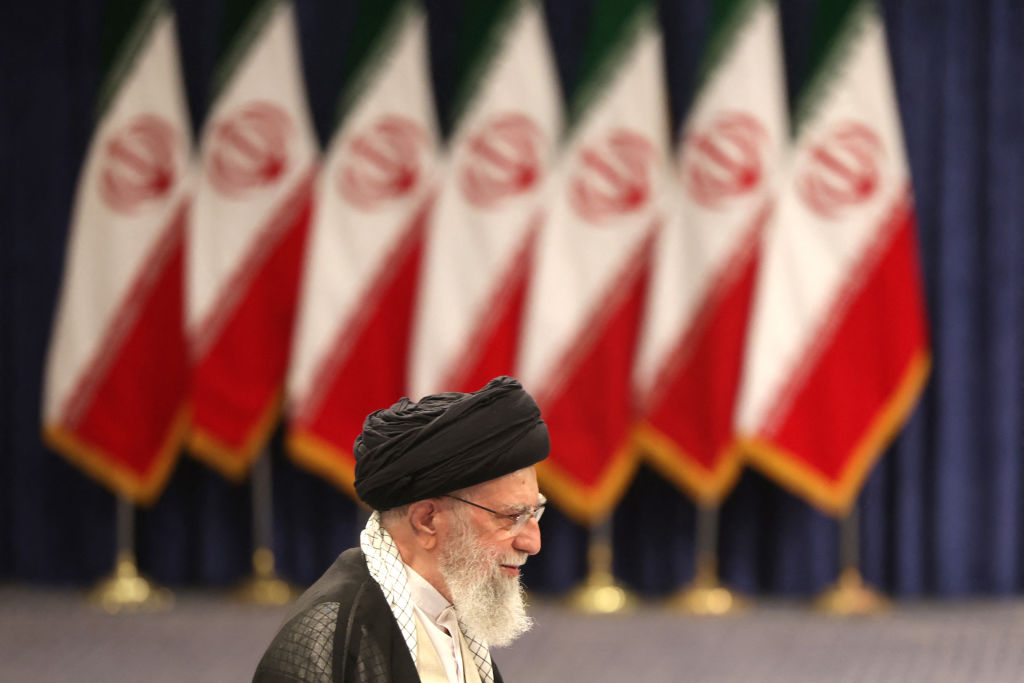It is a perilous moment for Iran. Israel has gained control of the skies. Much of the regime’s top military command has been taken out, to say nothing of the civilian toll. U.S. President Donald Trump is now calling for an “unconditional surrender.”
The Islamic Republic hopes it can convince the Gulf Arab states to tell the U.S. to pressure Israel to end its military campaign. But it is a lost cause. The regime has no true friends in the region—and it has itself to blame.
[time-brightcove not-tgx=”true”]
For almost five decades, the ayatollahs have pursued an expansionist policy of “exporting the revolution” and “forward defense.” But what Iran thought was a winning strategy to consolidate long-term leadership in the Middle East has backfired.
Iran’s rise was based on exploiting issues like the Palestine question and the marginalization of Lebanon’s Shi‘ites. Iran’s model presented Tehran as a mentor and patron, incubating armed groups under the pretext of fighting just causes. In reality, Iran’s proxies relied on the same oppressive behavior as that of the Tehran regime.
For years, Iran’s strategy appeared to be working. Iran-backed groups became the strongest actors in their countries. The seeming success of Lebanese Hezbollah—the first proxy Iran nurtured—became a template for others in the Middle East.
Read more: A New Middle East Is Unfolding Before Our Eyes
But the expansion of proxies created vulnerabilities for Iran and its assets. With no domestic space for critique, and the suppression of outside opponents, there were no checks on the regime’s behavior. Tehran grew blind to its brittleness, believing that it could outmaneuver the U.S., Israel, the Arab countries, and the international community. This included negotiating an international nuclear deal while it was enriching uranium beyond the level necessary for civilian use and thinking it could withstand the consequences of Hamas’ Oct. 7, 2023 attack on Israel.
Blindness also led Tehran to overestimate its friendship with Russia and China. Tehran saw Moscow as an ally when it intervened to prop up Syria’s Assad regime in 2015. But Russia saw instead an opportunity to grow its influence in that country, consolidate its military presence on the Mediterranean, and stand up to the West. Iran and China, for their part, struck a 25-year cooperation deal in 2021. But what Tehran viewed as rising global sway, China saw as a limited economic pact. Beijing subsequently stalled the agreement’s delivery.
Today, neither Russia nor China will come to Iran’s rescue. Beijing has always avoided getting involved in Middle East conflicts, and remains focused on its Indo-Pacific backyard. Moscow is bogged down in Ukraine and is prioritizing the yearslong conflict there, which has only escalated in recent months.
Nor will Iran’s proxies save it. Israel has decapitated Hezbollah’s leadership and destroyed much of its missile arsenal, and the group would lose much of its remaining domestic support if it drags Lebanon into another war. The scale of the Houthis’ remaining arsenal in Yemen remains a mystery, following a monthslong campaign of U.S. airstrikes, but they are constrained by de-escalation deals with Washington and Riyadh. Most of the Iran-backed Iraqi factions are also choosing self-preservation over involvement in an unwinnable battle with Israel and the U.S. Meanwhile, Syria has turned from a fertile ground to a hostile one for Iran and its assets, after the Assad regime was toppled in December.
Israel has framed its war on Iran as a boost to regional and global stability. Both the U.S. and Israel want the mission achieved. And while the Arab Gulf states have pursued rapprochement in recent years with Iran, and are calling for de-escalation, that is largely a symbolic gesture. They will ultimately not stand in the way of a new Middle East and a weakened Iran.
The regime, it seems, may be taking its last breaths, and has no one to turn to.

